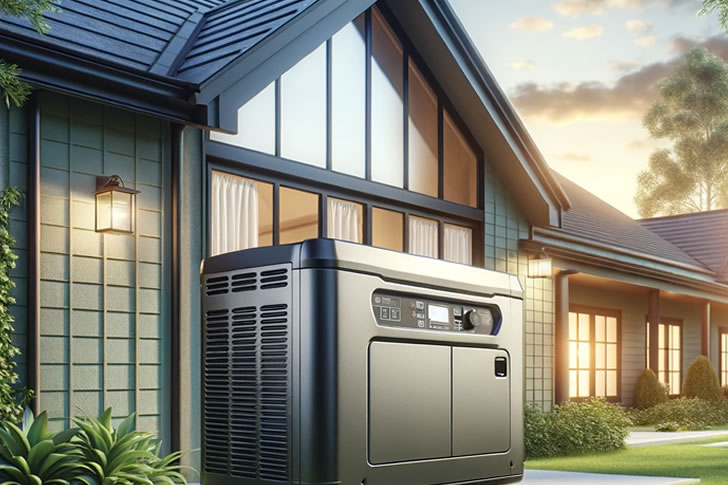How To Get Cheap Emergency Generator For Home
Electricity is essential for maintaining comfort and safety in the home. An emergency generator can be a lifesaver during power outages. However, the cost of purchasing and installing a generator can be a significant barrier. We’ve carried out detailed research and might help find a range of emergency generators designed to meet needs and budgets.

Understanding the Different Types of Generators
Before searching for a generator, it’s important to understand the different types available and evaluate what kind best suits your needs. There are mainly three types of generators: portable, inverter, and standby generators.
1. Portable Generators: They are the most cost-effective option, usually ranging from $300 to $1000. Portable generators run on gasoline, diesel, or propane and can power essentials like a refrigerator, lights, and small medical devices.
2. Inverter Generators: These are typically more expensive than portable ones but offer cleaner energy that is safer for powering sensitive electronic devices and reduce noise and fuel consumption.
3. Standby Generators: These are the most expensive, but they provide the most convenience and power. Installation by a professional is required, and they can run on natural gas or propane. Prices, including installation, can range from $2,000 to $10,000 or more.
Financial Assistance and Discounts
Many seniors live on fixed incomes, making large purchases daunting. Here are some strategies to acquire a generator without breaking the bank:
– Government Programs & Grants: Some government programs provide financial assistance to seniors for home modifications, which can include emergency generators. For example, the Weatherization Assistance Program (WAP) offers services that can include installing backup power sources.
– Rebates and Tax Credits: Some manufacturers, states, and local utilities offer rebates or tax credits for purchasing energy-efficient appliances, including generators.
– Nonprofits and Community Groups: Organizations such as Lions Clubs or local senior centers may have resources available or can connect you with charitable foundations that help seniors with such needs.
– Retailer Discounts: Stores often have sales, especially around major holidays. Signing up for newsletters or loyalty programs can give you access to discounts and promotional deals.
Consider Shared Solutions
In senior living communities or neighborhoods with a high population of seniors, a shared generator can be a cost-effective solution. Each member of the community contributes towards the purchase and maintenance costs. This not only reduces individual expenses but also fosters a spirit of cooperation and community support.
Choosing the Right Size and Features
While the largest generator might seem like the best option, it’s often unnecessary and more expensive both to buy and to operate. Assessing actual energy needs can result in purchasing a less powerful, cheaper unit that still meets all requirements. An energy audit can help determine this. Also, look for features like:
– Automatic Start: This feature is particularly useful for seniors, as it means the generator will automatically begin operation during a power out.
– Fuel Efficiency: Generators with better fuel efficiency save money in operating costs over time, even if they come with a slightly higher initial price tag.
Purchasing Used or Refurbished Models
Buying a used or refurbished generator can reduce costs significantly. Ensure that any used generator is from a reputable source and ideally comes with a warranty or guarantee. It’s important to have it inspected by a professional before use to ensure safety and functionality.
Rent During Emergency Only
If residing in an area where outages are infrequent, renting a generator during emergencies can be a more economical solution than purchasing one outright. Many equipment rental companies offer generators, and this strategy avoids maintenance and storage concerns.
Maintenance and Storage
Proper maintenance can extend the life of a generator, ultimately saving money. Regular checks, particularly before expected bad weather periods, will ensure the generator is ready when needed. Also, proper storage in a dry, clean area ensures the generator remains in good condition.
In conclusion, while purchasing an emergency generator can seem financially daunting for seniors, there are numerous pathways to reduce this burden. By researching and utilizing community resources, government aid, and energy-efficient models, seniors can secure an affordable emergency power source, safeguarding their comfort and safety at home.







Recent Comments